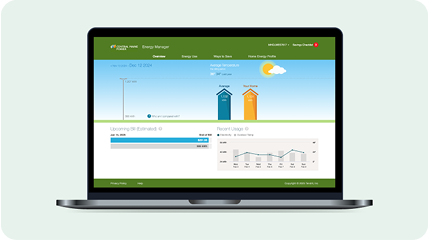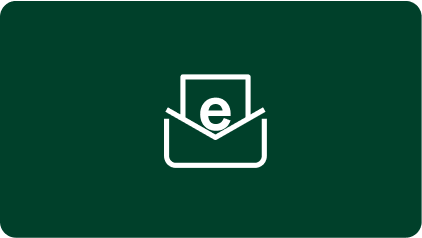
The heat is on, Maine!
Check out our tips and tools for the warmer months. Learn how to manage your energy use and check out our safety tips.
How the warm weather affects your energy use
High temperatures can increase your electricity usage and your bill. Understand how it happens:
Hot weather makes your AC, fridge, and freezer work harder, using more electricity. Older or poorly maintained systems use even more. Check out energy-saving incentives to cut costs.
Fans, pool pumps and other summer appliances add to your energy load.
Dust and debris can block airflow, making your systems work overtime. Clean filters monthly and vents annually to improve efficiency — and reduce allergies.
If your home isn’t well insulated, cool air escapes and hot air gets in, forcing your systems to work harder. Inspect for leaks or gaps and seal them.
Humidity is higher this time of year, making your AC or dehumidifier run longer. This extra effort increases energy use.
Summer breaks often mean more people at home using electronics and appliances. Talk to your family about how they use electricity while they are at home - make saving a family effort!
If cold showers aren’t your thing, you might use more electricity during the summer.
Tools to manage your use and bill
We offer tools to help you track your usage and control your bill
Vacation mode: on
Enjoy your summer worry-free with our digital tools
Tips to reduce energy use
A few simple tweaks can make a big difference in your usage
Set your air conditioning to 78° or higher during summer. Every degree above 75° can save up to 3% on cooling energy.
Raise the temperature when you're not home —unless you have a heat pump. Programmable thermostats make it easy.
Check for leaks in your ductwork and seal them. Duct tape works for a quick fix, or visit Efficiency Maine for more solutions.
Use a rolled towel or rug to block air leaks under doors and windows. Small steps like this help keep cool air inside.
Shut off air conditioner vents and close doors in rooms you’re not using to focus cooling where it’s needed most.
Upgrading to newer cooling systems can help you save on energy. Heat pumps, for instance, are very efficient and usually have a lower carbon footprint than other options. Visit EfficiencyMaine.com and learn more.
Use daylight instead of electric lights when possible. Open curtains in the morning or late afternoon to avoid heat buildup.
It seems opposite of the tip above, but they can work together. Close curtains during the hottest parts of the day, especially on west- and south-facing windows. Use thermal curtains to block heat while letting in light.
Fans cool people, not rooms. Turn them off when you leave, and do the same with lights.
Opening the fridge or freezer door for long periods lets all the cold air out, making the compressor work longer to maintain temperatures. Think about everything you want from the fridge before opening the door. Same goes for the oven — use the window to check your food instead of opening the door all the time!
Skip the dryer and hang clothes outside or on a rack. It saves energy and extends the life of your clothes.

We are here to help
Managing a higher bill during the summer can be challenging and we understand that. Programs like the Electricity Lifeline Program, Home Energy Assistance Program and Home Weatherization through Efficiency Maine Trust can help you manage your bills. Visit our Help with Bill page and check the programs available for our Maine customers.
Summer safety tips
From thunderstorms to digging, learn what to do to keep you and your family safe.
Planning to plant trees or start a home project this summer? Always check for underground utility lines first. Visit DIG Safe to learn how to dig safely and avoid damaging buried cables or pipes.
Always stay clear of overhead power lines. Whether you're trimming trees, flying a drone or setting off fireworks, maintain a safe distance - no line is safe to touch ever.
Never let electrical cords or devices — like phone chargers — come near water. For pools or hot tubs, make sure all electrical connections are properly grounded. Install GFCI outlets near any water source to prevent electric shock.
Summer often means more plugged-in devices — fans, grills, speakers, and chargers. Don’t overload your outlets. Use power strips with surge protection and spread out your devices to stay safe.
When using electrical devices outside, make sure they’re rated for outdoor use. Opt for battery-powered tools when possible.
Stay away from objects that conduct electricity, such as metal fences. If you see a downed power line, stay away and call 911 or 800.696.1000. If your basement or home floods, the first thing you should do is to turn off your electricity - if it’s safe to do so - otherwise, call 911.






